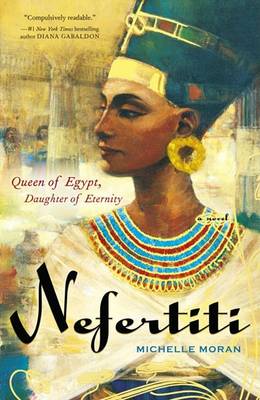Reviewed by gmcgregor on
While Moran tells the story of an interesting time in Egyptian history (Nefertiti's husband, Amunhotep, moved Egyptian worship away from its principal focus on Amun to Aten, and even constructed a new city in the desert to replace the capitol of Thebes), she forgets to give us interesting characters. Nefertiti, groomed by her parents to ensure their continued prominence at court, is spoiled and almost irredeemingly selfish, while Muhmodnjet is mostly passive and somehow naive despite being raised by one of the highest political officials at court, always gasping at something that really shouldn't be that surprising. The king, who renames himself Akhenaten to reflect his religious convictions, is almost a cartoon villain: he murders his own brother at the top of the book and apparently thinks of nothing but his own glorification. No one is compelling or more than two dimensional.
And while some of it is surely incidental, when I was reading it, I found myself constantly comparing it to the (better) The Other Boleyn Girl, with the personalities of and the dynamic between the sisters echoing Gregory's book. Stories about the relationships between sisters don't have to be as rosy as, say, Jane Austen's work, and certainly plenty of real-life relationships of this kind are poisonous and frought, but this one feels derivative and doesn't have any special insight or twist to share. I love books about the relationships between people: families, friends, romantic partners because they are often complex and moving. But this one brings nothing to the table and I'd recommend skipping it.
Reading updates
- Started reading
- 21 February, 2017: Finished reading
- 21 February, 2017: Reviewed
